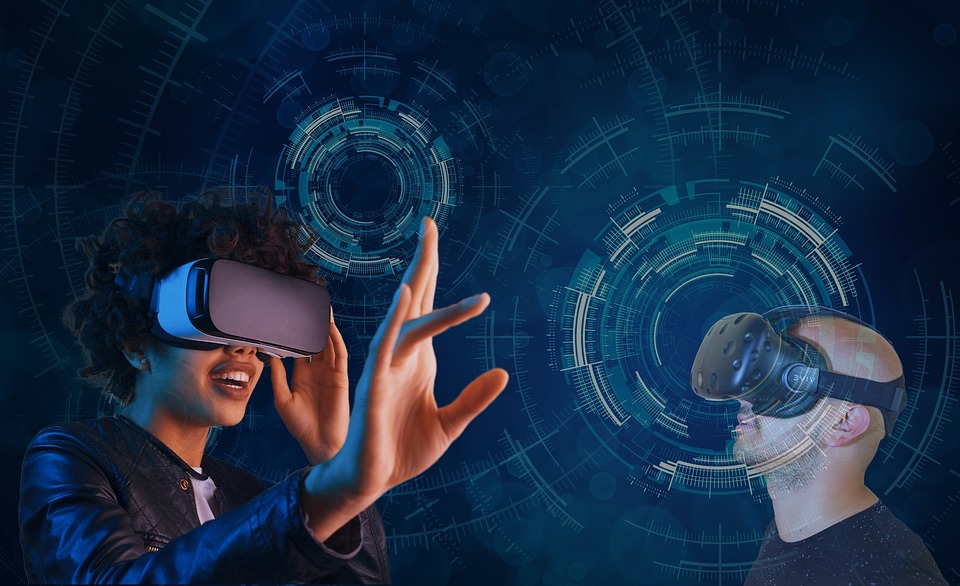What Is The Metaverse And How Does It Work?
Metaverse was one of the trendiest terms in 2021, especially after Facebook rebranded itself as “Meta.” As the New Year unfolds, we can expect the buzz around it to expand and take the world by storm. Nevertheless, the idea of Metaverse is still a little cloudy for many. So we are here to decode it for you.
Metaverse and the Buzz
Metaverse Group, an NFT-based metaverse real estate company, recently purchased a parcel of virtual land for $2.43 million. Suddenly, everyone was talking about the Metaverse. On October 28, 2021, Facebook (FB) announced its rebranding to Meta Platforms Inc. or Meta. The reason behind such nomenclature is apparent. The social networking giant is already capitalizing on the inevitable future of networking, communications, and digital experiences.
Additionally, reports suggest that Microsoft is also trying to build its Metaverse and call it Mesh. It should enable users to project their holographic selves to other users, among its many features. The platform should use virtual and augmented realities combined with the Metaverse concept under the name “holoportation.”
Of particular interest is the emergence of advanced metaverse gaming platforms like Roblox. It launched in 2006 and is now one of the most popular services of its kind in the U.S. Through it, players can create their games and monetize them to make real money while earning rewards. Even Nike has announced its partnership with Roblox, indicating that the Metaverse is a raging buzz across industries.

Image Source: PixaBay
What is the Metaverse?
Interestingly, the term comes from science fiction and combines the words ‘meta’ meaning beyond and “universe.” Together, they refer to “a massive scaled and interoperable network of real-time rendered 3D virtual worlds”, according to Metaverse Primer. Users can experience these interconnected worlds simultaneously, each with its sense of presence.
According to venture capitalist Matthew Ball, Metaverse relies on the “continuity of data, including identity, history, entitlements, objects, communications, and payments.” One can picture it as a distant successor to the Internet as we use it today. However, the two are not interchangeable or replaceable. Instead, the Metaverse could transform and build upon the Internet and emerge as an all-new, unprecedented avenue of exploration.
The Metaverse would be a virtual world comprising many different shared worlds. You could buy and sell land and buildings there and develop virtual avatars corresponding to or completely different from real life. Alternatively, you could establish virtual identities, make friends, visit places, buy goods and services, attend events, and so forth.
The Origins of the Idea
The term first appeared in Neal Stephenson’s 1992 novel, Snow Crash. The Meta was an imaginary place “made available to the public or would a worldwide fiber optics network.” Also, developers could “build buildings, parks, signs, as well as other things that do not exist in reality, such as vast hovering overhead light shows, special neighborhoods where the rules of three-dimensional space-time are ignored, and free combat zones where people can go hunting and kill each other.”
Ever since the book’s release and popularization of the concept, the Metaverse has appeared frequently in popular culture. Nevertheless, the common denominator is the Metaverse is a virtual reality, where people can do everything as in real life.
Some Examples of the Metaverse
Facebook’s Meta
Facebook has rebranded to Meta and made significant investments in the sphere, including its 2014 acquisition of Oculus. The platform visualizes a virtual world where people can use digital avatars and VR headsets while working, traveling, or relaxing. According to Meta CEO Mark Zuckerberg, “The next platform and medium will be even more immersive and embodied Internet where you are in the experience, not just looking at it, and we call this the metaverse.”
Microsoft’s Holoportation
One of the most exciting Metaverse applications will mix holograms and extended reality applications. Microsoft (MSFT) is developing the latter within its Mesh platform. This platform should connect the real world with augmented and virtual reality. Also, it will enable users to create holograms and avatars through their Microsoft Teams accounts in 2022. Lastly, it seeks to explore 3D virtual spaces for retail and workspaces.
Epic Games
Epic Games CEO Tim Sweeney recently remarked, “It is no secret that Epic is invested in building the metaverse.”
The gaming giant has hosted Ariana Grande and Travis Scotto concerts, movie trailers, and music debuts. But, most importantly, it hosted the iconic ‘I Have a Dream” speech by Martin Luther King Jr. as immersive re-imaginations. This is an example of how the Metaverse can customize and portray experiences and personalities in future open-world games.
Minecraft
Many compare the beloved Minecraft virtual universe to Lego because it allows players to create their digital characters. Additionally, they can build whatever they want using the in-game resources with over 140 million monthly active users; the platform reformed to rely more on virtual connections during the pandemic. Therefore, it is inching closer to the Metaverse concept.
The Future of the Metaverse
The possibilities and extent of the Metaverse are almost impossible to anticipate. However, considering that the Metaverse could fully replicate real life, questions still abound on its prospects.
Several platforms in the blockchain-based Metaverse combine augmented reality and virtual reality technology with the Metaverse concept. This should enable broader interactions in the space for future users. Also, several global giants like Facebook, Google, Microsoft, and more are investing in cloud computing and virtual reality. This way, they anticipate the metaverse concept’s growth and unprecedented development.
Disclaimer: The Content is for informational purposes only; you should not construe any such information or other material as legal, tax, investment, financial, or other advice. Nothing ...
more


